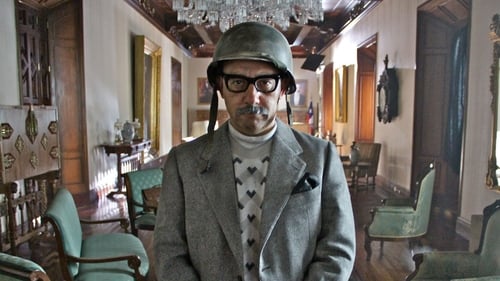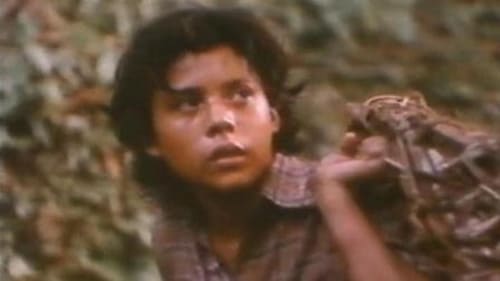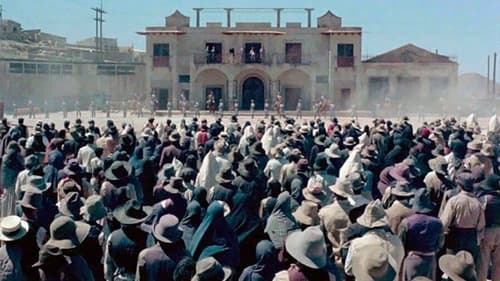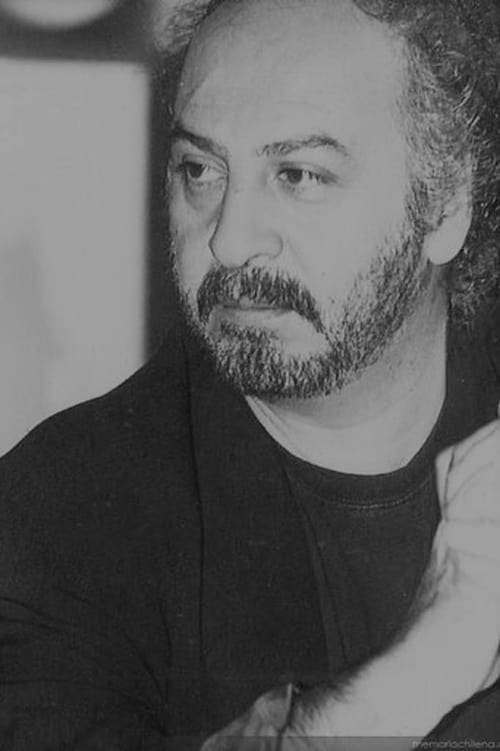
Miguel Littín
Рождение : 1942-08-09, Palmilla, Colchagua, VI Region, Chile
История
Miguel Ernesto Littín Cucumides is a Chilean film director, screenwriter, film producer and novelist. Miguel Littín directed the most popular Chilean film of all times, El Chacal de Nahueltoro (1969) becoming a figure of the New Latin American Cinema.
In México he directed several films. Letters from Marusia, based on a miners strike in Chile. Letters from Marusia was nominated for the Academy Award for Best Foreign Language Film. El Recurso del Método (Long Live the President) based on the Alejo Carpentier's book El Recurso del método (Reasons of State) a co-production with Mexico,France and Cuba. The Widow of Montiel with Geraldine Chaplin based on a Gabriel García Márquez short story. Then he went to Nicaragua to do Alsino and the Condor, based the novel Alsino by Pedro Prado. In 1981 he was a member of the jury at the 12th Moscow International Film Festival.
He moved to Spain in 1984, Littín decided to enter Chile clandestine to do a documentary that showed the condition of the country under the Pinochet's regime. It was made the subject of Nobel Laureate Gabriel Garcia Marquez's book Clandestine in Chile: The Adventures of Miguel Littin.
He eventually returned to Chile where he continued to make films, among them Tierra del Fuego based on the adventures of Julius Popper an explorer and Dawson, Isla 10, about a group of political prisoners sent to Dawson's island during Pinochet's regime. Littín was the mayor of his home town in the center valley, Palmilla in 1992-94 and re-elected for the period 1996-2000.
His films Actas de Marusia and Alsino and the Condor were nominated by the Academy of Motion Picture Arts and Sciences for Best Film in a Foreign Language. Alsino and the Condor won the Golden Prize at the 13th Moscow International Film Festival.
His 2005 film The Last Moon was entered into the 27th Moscow International Film Festival.

Self - Filmmaker
After the coup d'État of the Democratic government of Allende, the embassy of Italy in Santiago played a major role in helping the opposers of the regime, and extradited many of them to Italy.

Writer
Сюжет основан на реальных событиях и рассказывает о последних 7-ми часах правления бывшего президента Чили Сальвадора Альенде. Вместе со своими ближайшими соратниками 11 сентября 1973 года ему пришлось пережить жестокий военный переворот.

Director
Сюжет основан на реальных событиях и рассказывает о последних 7-ми часах правления бывшего президента Чили Сальвадора Альенде. Вместе со своими ближайшими соратниками 11 сентября 1973 года ему пришлось пережить жестокий военный переворот.

Executive Producer
After the 1973 coup that deposed Allende and brought Pinochet to power in Chile, the former members of his cabinet are imprisoned on Dawson Island, the world's southernmost concentration camp. Here these men are determined to survive and provide history with their testimony.

Screenplay
After the 1973 coup that deposed Allende and brought Pinochet to power in Chile, the former members of his cabinet are imprisoned on Dawson Island, the world's southernmost concentration camp. Here these men are determined to survive and provide history with their testimony.

Director
After the 1973 coup that deposed Allende and brought Pinochet to power in Chile, the former members of his cabinet are imprisoned on Dawson Island, the world's southernmost concentration camp. Here these men are determined to survive and provide history with their testimony.

Executive Producer
Palestine 1914. One morning in July, Soliman, a young Palestinian and Jacob, his Jewish friend, begin to build a house in Beit-Sajour, in the hills of Judea, with stones brought from Beit-Jala, while the apparent stillness of the place is interrupted by bursts of violence that anticipate the future days of the war.

Writer
Palestine 1914. One morning in July, Soliman, a young Palestinian and Jacob, his Jewish friend, begin to build a house in Beit-Sajour, in the hills of Judea, with stones brought from Beit-Jala, while the apparent stillness of the place is interrupted by bursts of violence that anticipate the future days of the war.

Director
Palestine 1914. One morning in July, Soliman, a young Palestinian and Jacob, his Jewish friend, begin to build a house in Beit-Sajour, in the hills of Judea, with stones brought from Beit-Jala, while the apparent stillness of the place is interrupted by bursts of violence that anticipate the future days of the war.

Writer
Two men at cause of confusion and superstitions become involved in a duel that ends unexpectedly.

Director
Two men at cause of confusion and superstitions become involved in a duel that ends unexpectedly.

Director
Осталось несколько минут до конца XIX века. Перед собором Сантьяго в Чили, нищий чувствует приближение смерти. Он решает рассказать свою историю и окинуть взглядом всю свою жизнь. Этот человек Юлиус Поппер, румынский инженер, который в 1860 изобрел новый способ добычи золота и был отправлен в Тьерра дель Фуего, в Патагонии королевой Кармен Сильба. Множество персонажей и событий проносятся в голове у Юлиуса перед смертью. Он вспоминает свою любовницу-армянку и итальянского авантюриста, и австрийского сержанта, и жителя Уэльса, любителя волынок. Но главные события вращаются вокруг мест добычи ценного металла, где разворачивается борьба за право владения землей.

Writer
In the seas of southern Chile, where the known world ends, in dangerous waters and ghost ports, a space where everything is possible, a group of sailors dare still to dream in mysteries and enchantments...

Director
In the seas of southern Chile, where the known world ends, in dangerous waters and ghost ports, a space where everything is possible, a group of sailors dare still to dream in mysteries and enchantments...

Screenplay
After 20 years of exile, Aron returns to Chile to find out who he is. He asks questions, not only of those who stayed behind but also of himself, examining his relationship with his past and his own memory. The people who stayed lived through 20 years of dictatorship. They were either victims or executioners. Amidst this wreckage, Aron wonders what name his brother is using now, where his father is... Can he, in Isol's arms and through her love, find his way again ? What future awaits him? Like Mola the torturer, he has returned from an impossible journey, and Aron knows that each man is his own executioner. Shipwreck and resurrection are the two facets of a complex truth.

Director
After 20 years of exile, Aron returns to Chile to find out who he is. He asks questions, not only of those who stayed behind but also of himself, examining his relationship with his past and his own memory. The people who stayed lived through 20 years of dictatorship. They were either victims or executioners. Amidst this wreckage, Aron wonders what name his brother is using now, where his father is... Can he, in Isol's arms and through her love, find his way again ? What future awaits him? Like Mola the torturer, he has returned from an impossible journey, and Aron knows that each man is his own executioner. Shipwreck and resurrection are the two facets of a complex truth.

Screenplay
Narrative of a period of life (1926 - 1934) of the Nicaraguan revolutionary leader Sandino, who was known as "The general of free men."

Director
Narrative of a period of life (1926 - 1934) of the Nicaraguan revolutionary leader Sandino, who was known as "The general of free men."

Director
In 1985, Miguel Littin returned clandestinely to Chile and made this documentary divided in four parts about the political reality of the country. The parts are titled, Miguel Littin: Clandestine in Chile; The North of Chile: When I Fled to the Pampa; From the Frontier to the Interior of Chile in Flames; and Allende: the Time of History, the film features testimony from Garcia Marquez, Fidel Castro and Hortensia Bussi. Also shown is the Chile of Augusto Pinochet and Salvador Allende. When Littin returned to Spain and finished his work, Gabriel Garcia Marquez set out to write the story of the film, published under the title Clandestine in Chile: the Adventures of Miguel Littin, which quickly became a best seller.

Director
Альсино, мальчик, живший со своей бабушкой в отдаленном районе Никарагуа. Он был захвачен войной между повстанцами и правительственными войсками, когда Америка решила открыть плацдарм на землях семьи мальчика. Он продолжает стараться жить обычной жизнью: гулять, лазить по деревьям, играть с девочками, но война все равно входит в его жизнь. Конфликт втягивает его, и теперь он уже часть этой войны.

Writer
Альсино, мальчик, живший со своей бабушкой в отдаленном районе Никарагуа. Он был захвачен войной между повстанцами и правительственными войсками, когда Америка решила открыть плацдарм на землях семьи мальчика. Он продолжает стараться жить обычной жизнью: гулять, лазить по деревьям, играть с девочками, но война все равно входит в его жизнь. Конфликт втягивает его, и теперь он уже часть этой войны.

Writer
Видный политический деятель господин Монтель скоропостижно умирает в разгар революционных волнений в своей стране. Вдова сталкивается с тем миром, в котором ее супруг обитал в то время, пока Аделаида проживала в своих иллюзиях. Оказалось, что ее муж — вовсе не такой уж и любимый народом деятель. Аделаида просит приехать на похороны своих детей, которые живут в Париже, но они отвечают, что не хотят возвращаться в страну, где каждый день убивают людей. Вдова узнает горькую правду — на похороны господина Монтеля почти никто не пришел..

Director
Видный политический деятель господин Монтель скоропостижно умирает в разгар революционных волнений в своей стране. Вдова сталкивается с тем миром, в котором ее супруг обитал в то время, пока Аделаида проживала в своих иллюзиях. Оказалось, что ее муж — вовсе не такой уж и любимый народом деятель. Аделаида просит приехать на похороны своих детей, которые живут в Париже, но они отвечают, что не хотят возвращаться в страну, где каждый день убивают людей. Вдова узнает горькую правду — на похороны господина Монтеля почти никто не пришел..

Writer
Set in the early 1900s, this film charts the rule of a Latin American dictator as he moves from being a charming despot to a tyrannical ruler before he is finally ousted, only to die in obscurity in Paris. Early in his regime, the resources and agricultural products his country sells command high prices, and he is a reasonably confident, even gentle, ruler who likes to take long vacations with his daughter in Paris. After World War I, with falling prices and a number of coup attempts behind him, his rule becomes quite cruel.

Director
Set in the early 1900s, this film charts the rule of a Latin American dictator as he moves from being a charming despot to a tyrannical ruler before he is finally ousted, only to die in obscurity in Paris. Early in his regime, the resources and agricultural products his country sells command high prices, and he is a reasonably confident, even gentle, ruler who likes to take long vacations with his daughter in Paris. After World War I, with falling prices and a number of coup attempts behind him, his rule becomes quite cruel.

Writer
В фильме чилийского режиссёра Мигеля Литтина показывается одна из тёмных страниц истории Чили – жестокое подавление восстания рабочих на селитряных рудниках. Будучи в изгнании во времена правления Пиночета, Литин снимал этот фильм на севере Мексики, где климат и пейзаж соответствовали северу Чили – именно тем провинциям, где и происходили описываемые события. Сценарием к фильму послужил роман Патрисио Маннса, написанного им на основе рассказов очевидцев массовых убийств и пыток, происходивших в начале ХХ века, когда хозяевами Чили фактически являлись иностранные капиталисты. В целях адаптации к телетрансляции и, наверное, из морально-этических соображений из фильма были вырезаны сцены насилия солдат над задержанными рабочими и их жёнами в камере пыток, что в некоторой мере преуменьшает понимание эмоциональной составляющей борьбы за свои права и достойную жизнь.

Director
В фильме чилийского режиссёра Мигеля Литтина показывается одна из тёмных страниц истории Чили – жестокое подавление восстания рабочих на селитряных рудниках. Будучи в изгнании во времена правления Пиночета, Литин снимал этот фильм на севере Мексики, где климат и пейзаж соответствовали северу Чили – именно тем провинциям, где и происходили описываемые события. Сценарием к фильму послужил роман Патрисио Маннса, написанного им на основе рассказов очевидцев массовых убийств и пыток, происходивших в начале ХХ века, когда хозяевами Чили фактически являлись иностранные капиталисты. В целях адаптации к телетрансляции и, наверное, из морально-этических соображений из фильма были вырезаны сцены насилия солдат над задержанными рабочими и их жёнами в камере пыток, что в некоторой мере преуменьшает понимание эмоциональной составляющей борьбы за свои права и достойную жизнь.

Director
Salvador Allende interviewed by Régis Debray in 1971.

Screenplay
During the socialist government of Marmaduke Grove in 1932, a group of villagers decide to take some land in the area of Palmilla. Almost like a mythical journey, problems arise when seated and in a position to bring the socialist ideal in the population. Everything becomes more complicated with rumors that the reactionary forces have overthrown the socialist government. A movie that because of the coup was not released in Chile and was only terminated by Littin in exile in Mexico.

Director
During the socialist government of Marmaduke Grove in 1932, a group of villagers decide to take some land in the area of Palmilla. Almost like a mythical journey, problems arise when seated and in a position to bring the socialist ideal in the population. Everything becomes more complicated with rumors that the reactionary forces have overthrown the socialist government. A movie that because of the coup was not released in Chile and was only terminated by Littin in exile in Mexico.

Director
On January 4, 1971, an extensive dialogue takes place between the president of Chile Salvador Allende and the French intellectual Regis Debray, a discussion about the Chilean process towards the installation of a socialist government. Filmed by a team from Chilefilms, a state-owned company dedicated to the production of audiovisual works, it is a unique testimony to Allende's thinking in the first year of his government.

Director
Based on an actual murder case that ignited a furious debate over the death penalty in Chile in 1960, this experimental social drama portrays the life and death of an illiterate peasant who, while drunk, murdered the woman with whom he had a relationship and her five children.

Writer
Based on an actual murder case that ignited a furious debate over the death penalty in Chile in 1960, this experimental social drama portrays the life and death of an illiterate peasant who, while drunk, murdered the woman with whom he had a relationship and her five children.

Feature film that wraps, through Jorge Lillo's text, three short films by Helvio Soto

Two guerrillas (Miguel Littin and Jorge Guerra) wander lost in the desert until one of them dies. A jeep appears in the distance to rescue the survivor, but unable to read the signs of comradeship pointed out to him by the drivers of the vehicle, he shoots them.

Director
We remain on the street, this space that is perhaps the great territory of invention for Latin American cinema. Held at the Centro de Cine Experimental of the Universidad de Chile - one of the most prolific and enduring poles of militant cinematographic production at the time -, this experimental fiction about class relations is one of Miguel Littín's first films, which would become one of the central references of the political cinema in Latin America. Por la tierra ajena was one of many films that sought to take part in the process of raising awareness that would lead to the election of Salvador Allende in 1970.

Sequences that illustrate moments in a woman's life, in parallel to the political events happening in South America during the 60's.

Assistant Director
A boy goes to his friend's funeral procession. When he realizes that his grave does not have flowers like the others, and that he does not have money to buy them, he goes out looking for some in the streets of Santiago.






